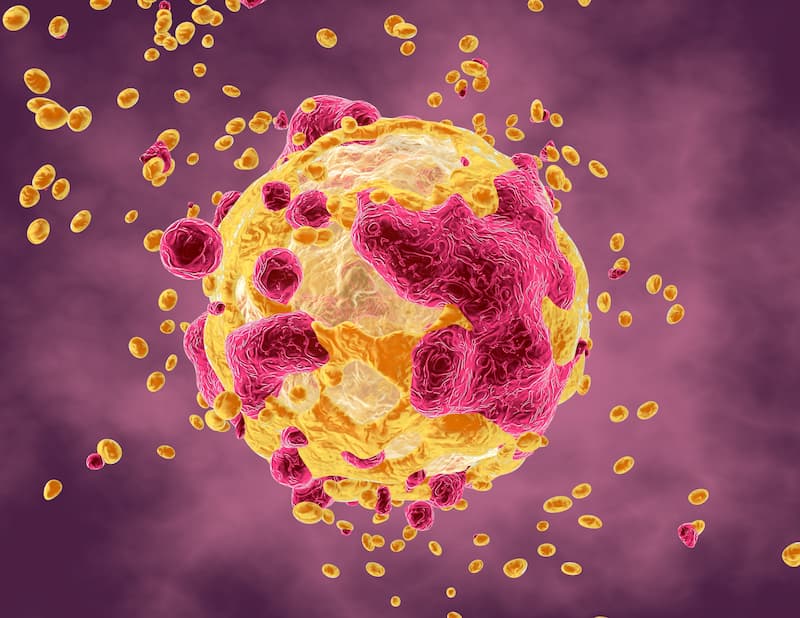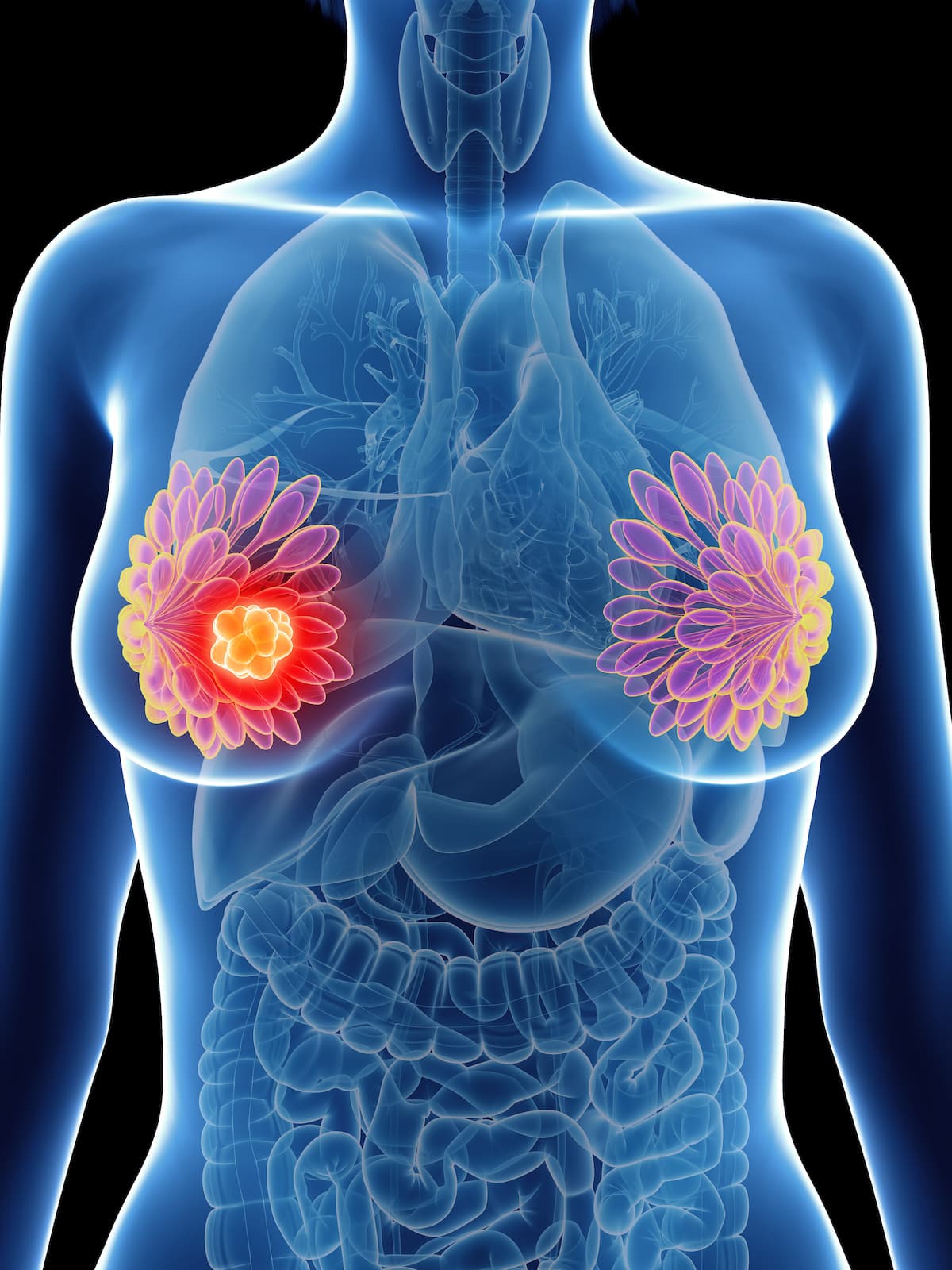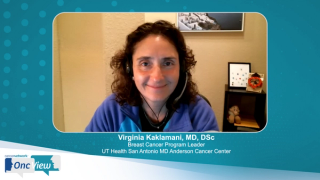
Breast Cancer
Latest News
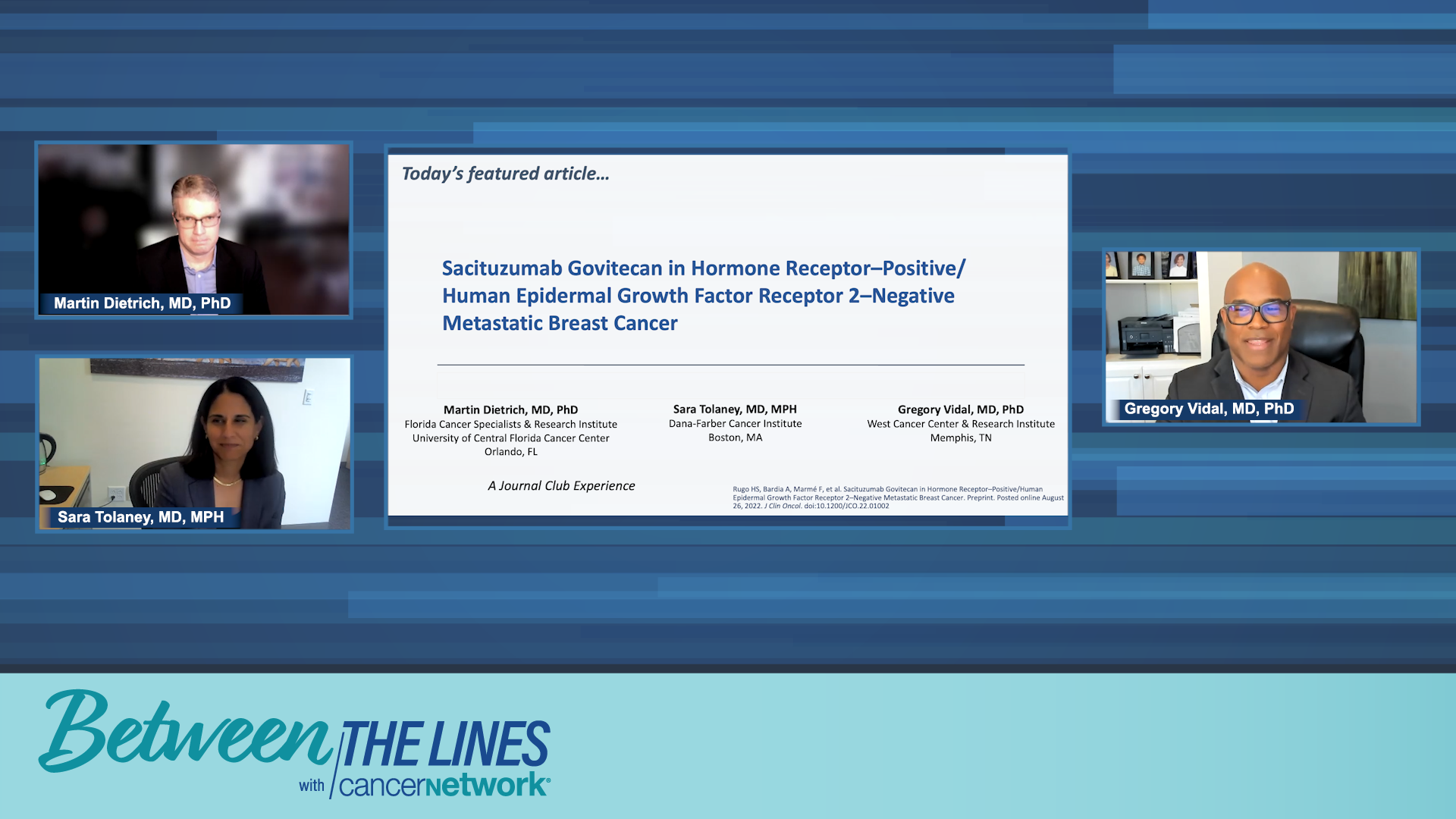
Latest Videos

CME Content
More News
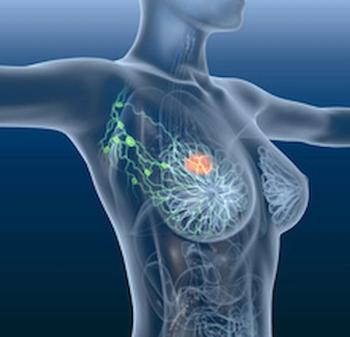
ER Antagonist OP-1250 Demonstrates Continued Anti-Tumor Activity in Advanced ER+ HER2– Breast Cancer
Among patients with advanced and/or metastatic hormone receptor–positive HER-2 negative breast cancer, complete estrogen receptor antagonist OP-1250 continued to yield clinical benefits such as reductions in target tumor lesions.

Dr. Joyce O’Shaughnessy closes the discussion with considerations for clinicians on monitoring patients with HER2-psotive breast cancer.
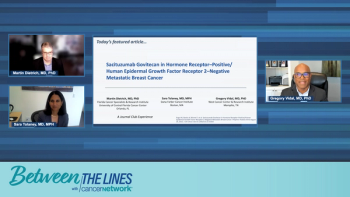
Experts discuss progression-free survival (PFS) and overall survival (OS) data from the TROPiCS-02 trial on SG versus treatment of physician’s choice.

Dr Tolaney discusses the TROPiCS-02 study design and comments on the key baseline characteristics of the patients with HR+/HER2- mBC who were enrolled in the trial.

Switch treatment with palbociclib and fulvestrant from aromatase inhibitors plus palbociclib upon onset of ESR1 blood mutations and before progression yielded better progression-free survival among those with estrogen receptor–positive, HER2-negative advanced breast cancer.

Dr Vidal elaborates on the role of trophoblast cell-surface antigen 2 (Trop-2) in metastatic breast cancer and discusses the rationale for using Trop-2–directed antibody-drug conjugates (ADCs), including sacituzumab govitecan (SG), in patients with the disease.

Sara Tolaney, MD, MPH introduces the 2022 Journal of Clinical Oncology preprint publication, “Sacituzumab Govitecan in Hormone Receptor–Positive/ Human Epidermal Growth Factor Receptor 2–Negative Metastatic Breast Cancer” and invites Martin Dietrich, MD, PhD and Gregory Vidal, MD, PhD to comment on the typical patients with hormone receptor–positive (HR+)/human epidermal growth factor receptor 2–negative (HER2-) metastatic breast cancer (mBC) who they see in their clinical practice.

After a median of 50 months of follow-up, palbociclib plus adjuvant endocrine therapy did not improve invasive disease-free survival in a subgroup of patients with stage IIA estrogen receptor–positive breast cancer

Many communities face persistent and tenacious issues surrounding the treatment of patients with breast cancer, according to the founder of the Missing Pink Breast Cancer Alliance.

As part of Breast Cancer Awareness Month, CancerNetwork® spoke with Deborah M. Axelrod, MD, about developments within the surgical breast cancer space, including decreasing the need for re-excision and full lymph node dissection.

During Breast Cancer Awareness Month, CancerNetwork® spoke with Megan May, PharmD, about her role as a pharmacist on a multidisciplinary cancer care team.

Dr. Joyce O’Shaughnessy briefly reviews and provides insights into the FeDeriCa and the PHranceSCa studies.

In an interview for Breast Cancer Awareness Month, Paolo Tarantino, MD, discusses the importance of multidisciplinary care for patients with breast cancer, the most exciting data presented this year, and prospects for future research.

Based on results from the phase 3 TROPiCS trial, the FDA has granted priority review to sacituzumab govitecan-hziy for unresectable locally advanced or metastatic hormone receptor–positive, HER2-negative breast cancer.
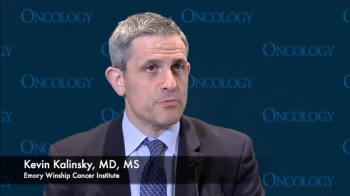
Kevin Kalinsky, MD, MS, spoke about future studies following results from the phase 2 MAINTAIN trial of ribociclib with or without endocrine therapy and after progression on a CDK4/6 inhibitor for patients with unresectable or metastatic hormone receptor–positive, HER2-negative breast cancer.

The PATHWAY anti-HER2/neu (4B5) Rabbit Monoclonal Primary Antibody was approved by the FDA as a companion diagnostic to help identify patients with HER2-low metastatic breast cancer who may be eligible to receive fam-trastuzumab deruxtecan-nxki.

The MAINTAIN trial was designed to assess endocrine therapy with or without ribociclib after progression on a CDK4/6 inhibitor in patients with unresectable or metastatic hormone receptor–positive, HER2-negative breast cancer.
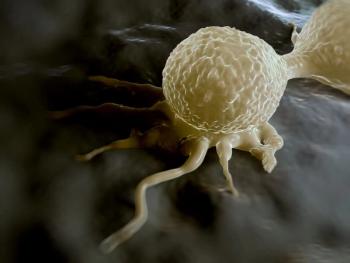
A secondary end point analysis of the phase 2 TUXEDO-1 trial found that trastuzumab deruxtecan improved outcomes without significantly impacting quality of life for patients with HER2-positive breast cancer with CNS metastases.

Japan’s Ministry of Health, Labor and Welfare approved pembrolizumab for use in 4 indications, including high-risk, early-stage triple-negative breast cancer, stage IIB or IIC melanoma, adjuvant renal cell carcinoma, and recurrent/metastatic cervical cancer.

Patients with locally advanced or metastatic ESR1-mutant, estrogen receptor–positive, HER2-negative breast cancer who have progressed on a CDK4/6 inhibitor may benefit from treatment with lasofoxifene and abemaciclib.

Results from a post-hoc subgroup analysis of the phase 3 TROPiCS-02 study indicated that sacituzumab govitecan improved efficacy outcomes vs physician’s choice of treatment in HER2-low and HER2 immunohistochemistry 0, hormone receptor–positive metastatic breast cancer.
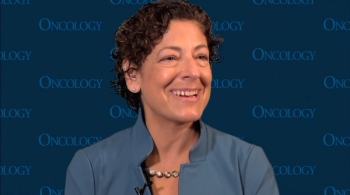
Angela DeMichele, MD, MSCE, discussed how the standard of care can be shifted based on the results of the phase 2 I-SPY2 trial investigating novel neoadjuvant treatment strategies in early breast cancer.
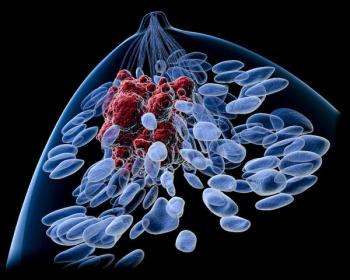
A pooled exploratory analysis of phase 3 trials found statistically significant progression-free survival and overall survival benefits with ribociclib/endocrine therapy for patients with hormone receptor–positive, HER2-negative breast cancer and visceral metastases.

Treatment with fam-trastuzumab deruxtecan-nxki yielded promising patient-reported outcomes in patients with hormone receptor–positive, HER2-low metastatic breast cancer, according to Naoto Ueno, MD, PhD.

Findings from the DESTINY-Breast04 trial indicated that patients with hormone receptor–positive, HER2-low metastatic breast cancer experienced promising quality of life following treatment with fam-trastuzumab deruxtecan-nxki.


